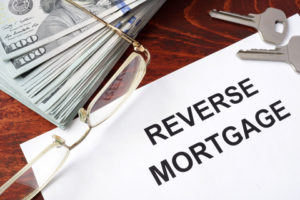If you own your own home and are 62 years of age or older, you may be able to leverage the equity in your home through a reverse mortgage, or home equity conversion mortgage (HECM). These mortgage options can provide a considerable amount of flexibility to your budget, can eliminate your existing mortgage, and best of all, requires no monthly mortgage payments.
How do you decide if one of these mortgages is right for you? Here are the basics for you. A reverse mortgage is financial product that allows you to access the equity in your home and use it similar to added income. The forms you can choose to pull from your equity consist of:
- A lump-sum
- Regular payments made to you
- A line of credit to be used as needed
- You need to own a home. Single family, 2-4 unit properties, condominiums, townhomes and manufactured homes built after 1976 are all eligible, but co-operative apartments are not eligible. In a co-op, you own shares of stock in a corporation, not real property. (Note: HECMs for cooperative apartments were authorized by Congress in 2008, but the implementing regulations have so far never been issued.)
- The home must be your primary residence. You must live in your home more than 183 days a year.
- You must be 62 years of age or older.
- You cannot be delinquent on any federal tax debt. If you have a past due federal tax debt, you are ineligible for an HECM. However, if you have other delinquent federal debts (student loans, for example) you can be eligible if you have a payment plan in place. For delinquent mortgages, whether private or FHA-backed, these are paid off by the reverse mortgage, and generally won’t count against your chances of getting a HECM.
- You must be able to cover certain required costs. You’ll need to show that you can continue to make required payments for items such as homeowners insurance, property taxes, HOA fees, etc.
- Financial counseling is required. You’ll need to attend an informational session with a HUD-approved

